Female share of global shipping workforce falls despite growth
The Women’s International Shipping and Trading Association (WISTA International) and BIMCO, the global trade association representing 64 per cent of the world’s tonnage, have signed a Memorandum of Understanding (MoU) to formalise collaboration in promoting diversity, sustainability, and professional excellence across the maritime industry.
Working together, WISTA and BIMCO aim to address shared industry challenges and create opportunities for professionals throughout the global shipping sector.
The MoU sets a framework for cooperation in research and development, information sharing, and training and education, including joint studies, data exchange, and professional development initiatives to enhance maritime skills and knowledge.
WISTA International president Elpi Petraki said the agreement reflects a shared mission to build a more inclusive industry.
She noted that “we are delighted to align with BIMCO, an organisation that shares our commitment to advancing a sustainable and inclusive maritime industry.”
In joining forces, she added, “we can amplify our impact by promoting knowledge exchange, professional development, and the collaboration that benefits the entire shipping community.”
BIMCO’s focus on standardisation and transparency complements WISTA’s goal of driving positive change through inclusivity, with both associations agreeing to develop joint initiatives based on shared values and a mutual vision for a resilient and forward-looking maritime sector.
Maritime Speaker Bureau upgraded to raise visibility of women professionals
At the same time, the Maritime Speaker Bureau, supported by the IMO and WISTA International, has undergone a major upgrade to help organisers identify, assess and engage leading women speakers across the global maritime sector.
With the addition of endorsements and peer recommendations, the platform now enables event organisers to create more balanced and credible panels, thereby elevating the overall quality of maritime events worldwide.
Petraki described the platform as “not just a tool, but a catalyst for change.”
By giving organisers access to top-calibre women speakers from across the globe, she said, WISTA is “removing barriers and enabling them to shape events that are more dynamic, more representative, and ultimately more impactful.”
The Bureau, she added, “supports the industry in raising its own standard.”
Since its launch, the platform has received over 180 direct enquiries and now lists nearly 450 women speakers.
Each profile specifies the topics speakers can cover and the regions where they are available, in person or online, helping organisers quickly match expertise to event themes such as decarbonisation, digital transformation, regulatory change, and human-centred leadership.
Petraki added that “we now have the tools, the technology, and nearly 450 women from across the industry ready to share their insights.”
The Speaker Bureau, she said, “makes it easy to find them, there’s no longer any excuse for unbalanced panels.”
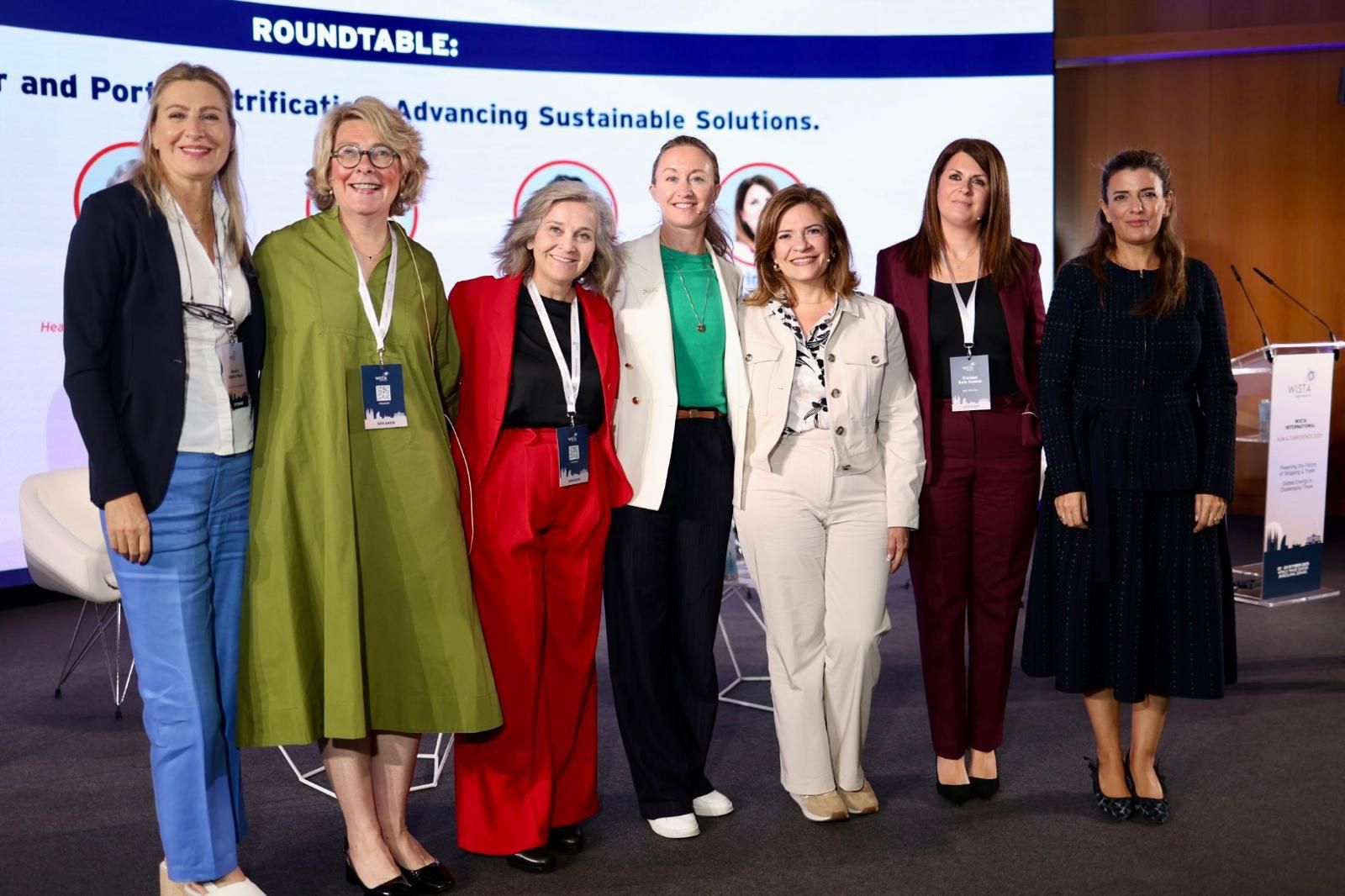
WISTA International Conference in Barcelona: powering the future of shipping and trade
Meanwhile, more than 400 maritime professionals gathered last week in Barcelona for the annual WISTA International AGM and Conference, themed “Powering the Future of Shipping and Trade, Global Energy in Challenging Times.”
Among them were 28 members of WISTA The Netherlands, joining high-level discussions on energy security, decarbonisation, and leadership in the maritime sector.
Opening the conference, Petraki said it was this collective commitment that gives WISTA its strength.
“What seems disruptive at first can lead to renewal and long-term growth,” she said.
“The same is true for our industry. Each challenge, from decarbonisation to digitalisation, is an opportunity to build better.”
She added that “progress doesn’t happen when we step back, it happens when we lead together.”
A key decarbonisation roundtable, moderated by business lawyer Ruth Breitenfeld, featured IMO Secretary-General Arsenio Dominguez, Karin Orsel, CEO of MF Shipping Group and president of the European Community Shipowners’ Associations (ECSA), Alice Acuna, Executive vice president for Trading at Moeve, and Alfredo Serrano Chacón, National Director at CLIA Spain.
Discussions focused on the need for global regulation to prevent regional fragmentation and on maintaining momentum toward cleaner fuels and energy-efficiency measures, even as the IMO postponed adoption of its Net-Zero Framework amid geopolitical tensions.
Orsel expressed disappointment at the delay, stressing the need for “clarity and collective progress.”
Furthermore, Louise Proctor of the IMO highlighted how collaboration with WISTA continues to expand its reach each year, making the maritime sector “more inclusive, data-driven, and representative.”
She said this partnership “is about action, not just awareness,” adding that both organisations share a goal to ensure that women at all levels, from seafarers to executives, can contribute fully and lead confidently.
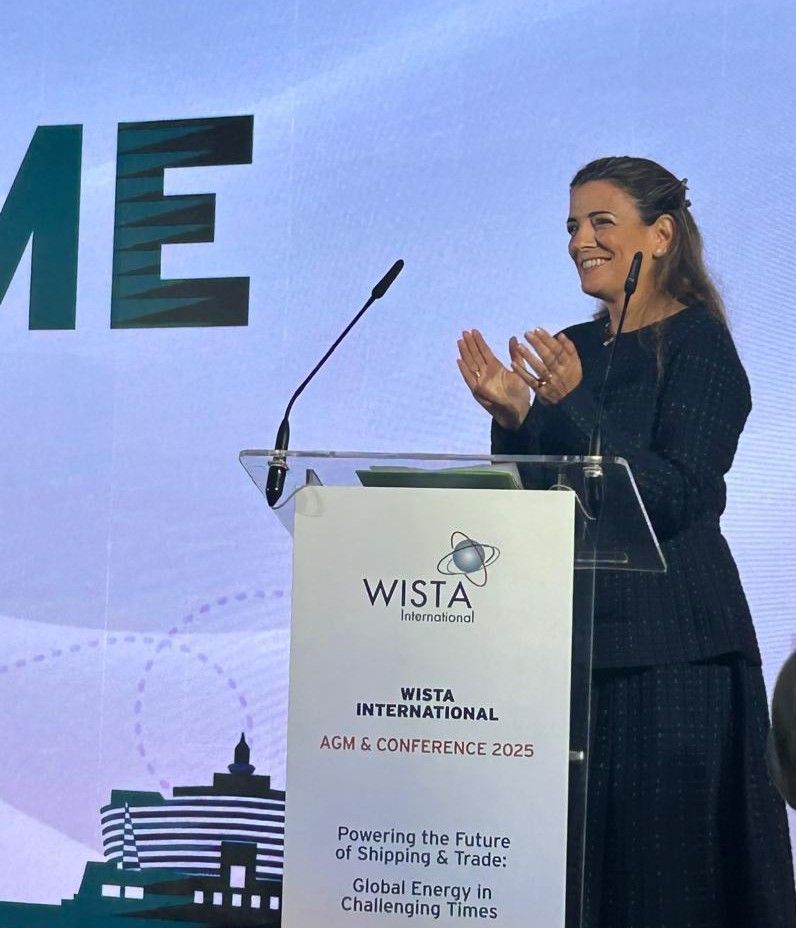
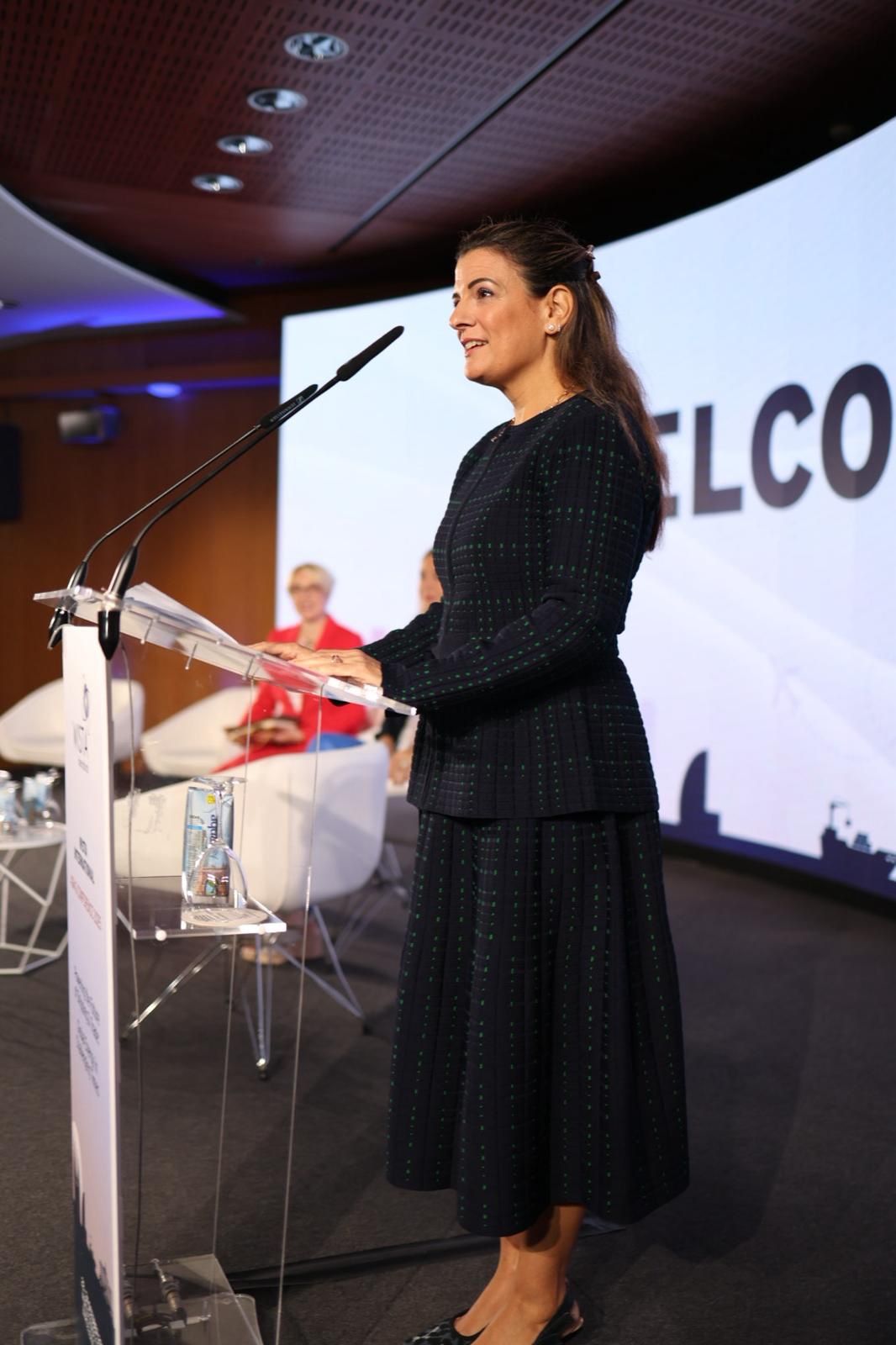
Women in Maritime Survey 2024: progress in numbers but shrinking share
At the conference, WISTA International and the IMO discussed the findings of the Women in Maritime Survey 2024, which was recently co-published by the two organisations.
The data revealed that 176,820 women now work in the maritime industry, a 14 per cent increase from 151,979 in 2021.
However, women’s overall share in the global workforce fell to just under 19 per cent, compared with 26 per cent three years earlier, due to faster overall sector growth.
In the private sector, female employment dropped from 29 per cent to 16 per cent, while representation in mid-management positions declined sharply from 39 per cent to 20 per cent.
At sea, women account for just over 1 per cent of global seafarers.
Despite broader participation, with 94 datasets from IMO member states compared to 45 in 2021, nearly half of all states still did not respond.
Proctor said she could “only encourage member states” to recognise the importance of data gathering. “Women in maritime is something that we’re talking about all the time,” she said, adding that “it’s not really a debate now,” and urging governments to engage more actively.
She also expressed concern about the lack of young women in maritime administrations, noting that only Argentina reported a staff member in the 18–24 age group, despite this being the second-largest cohort in the female workforce.
This, she warned, “could be indicative of systemic issues in recruiting young women into the maritime arm of national governments.”
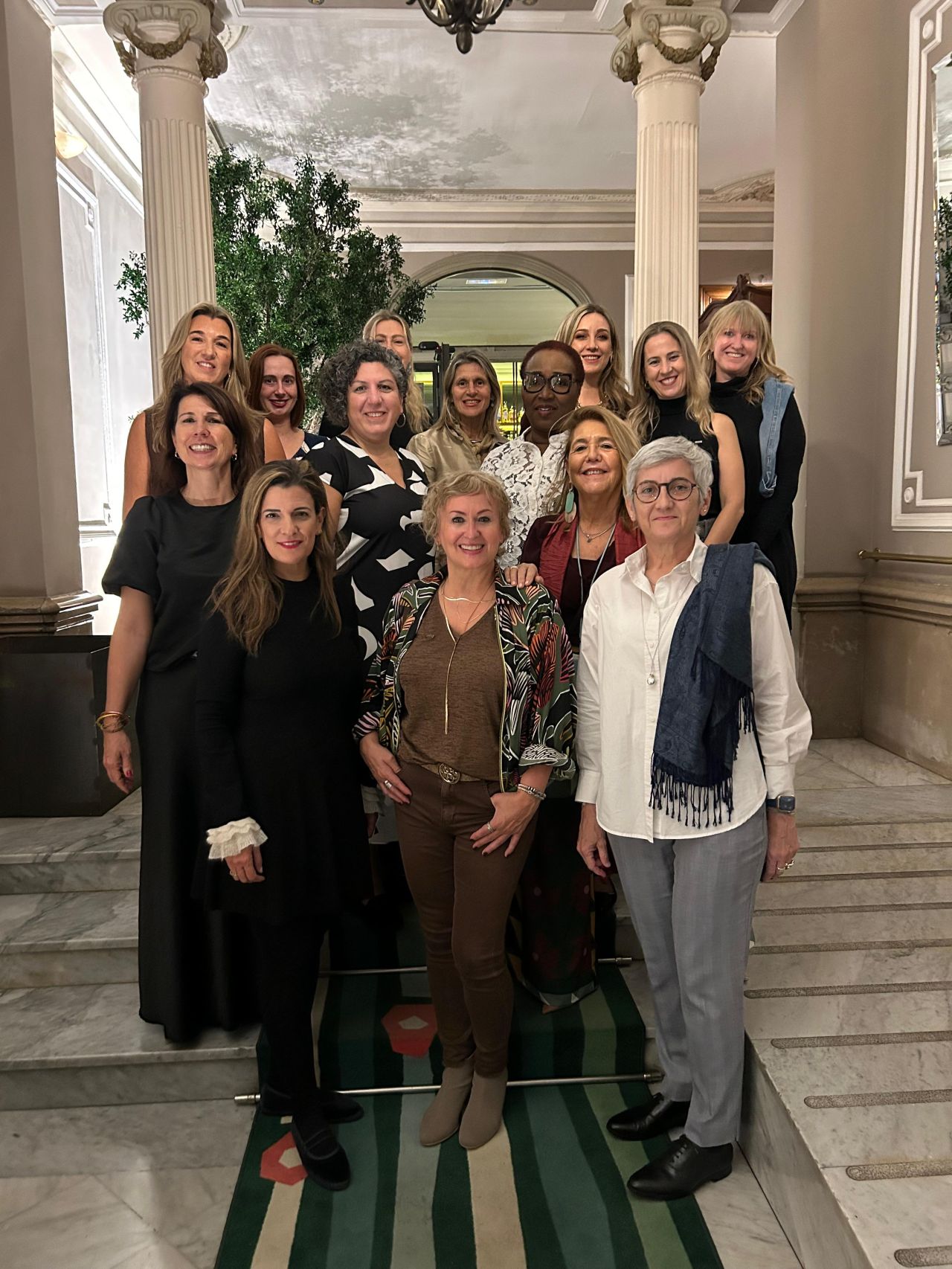
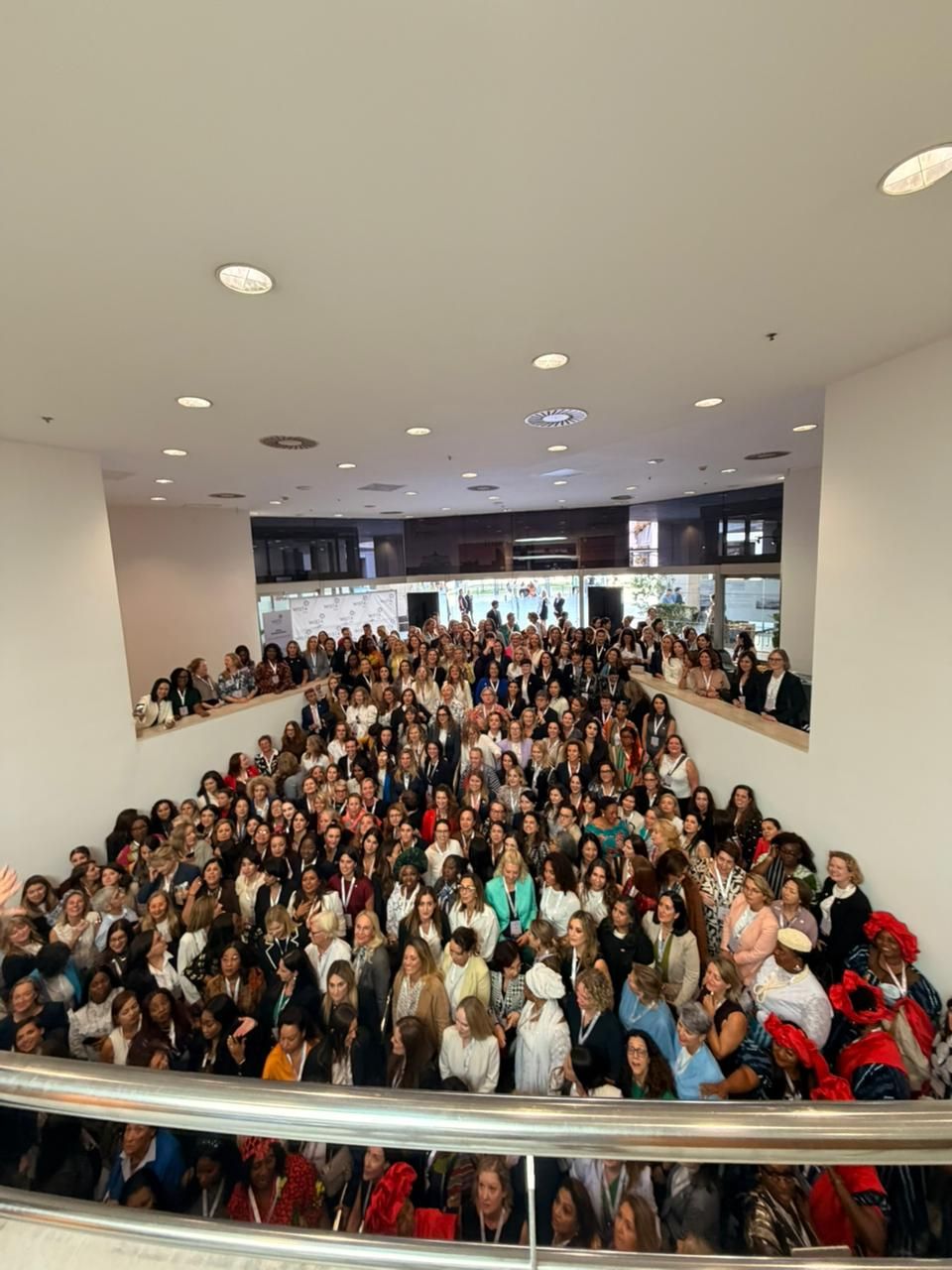
“A step backwards”, Petraki calls for concrete action
In closing, Petraki described the results as “a step backwards”, acknowledging minor gains in sectors such as advertising, recruitment and ship brokerage, but noting persistent barriers including gender stereotyping, workplace safety, and family-unfriendly policies.
“Opportunities across the industry continue to be limited for women,” she said.
She added that she often still has to explain to men “why women are suitable for vessels, why women are suitable for boards, for leadership.”
IMO Secretary-General Arsenio Dominguez agreed there is “some way to go.”
“Female representation is still disproportionately low, and women represent a small fraction of the seagoing workforce, highlighting the urgent need for continued commitment and action,” he said. “We must redouble our efforts to foster a truly diverse and inclusive maritime industry.”
The report concludes that the industry stands at “a critical juncture.”
“While progress has been noted, the persistent disparities highlight the urgent need to move beyond dialogue to decisive implementation,” it said.
For Petraki, the message remains clear.
“It’s about time we take responsibility and we do more than talk, we need actions.”
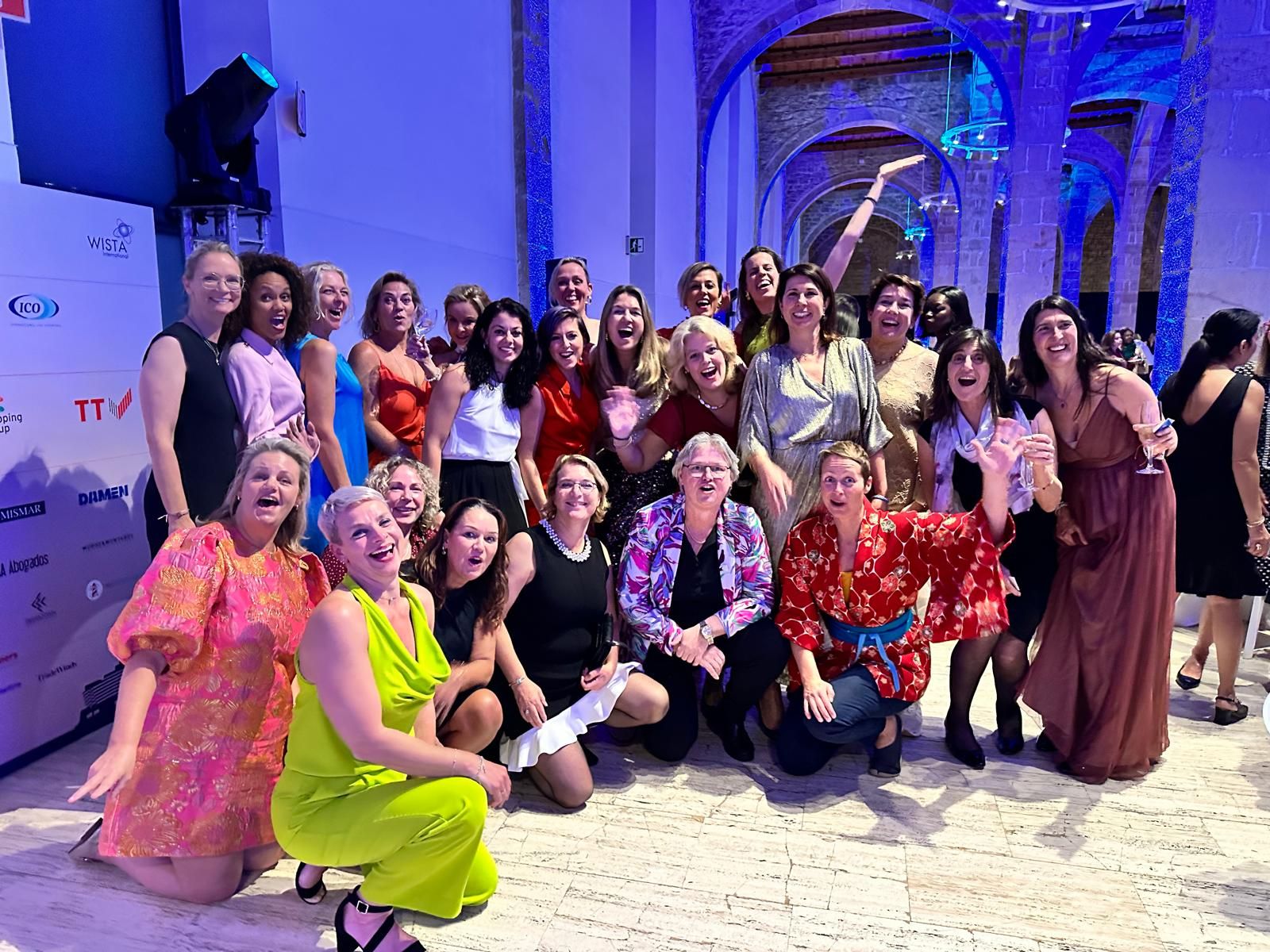





Click here to change your cookie preferences